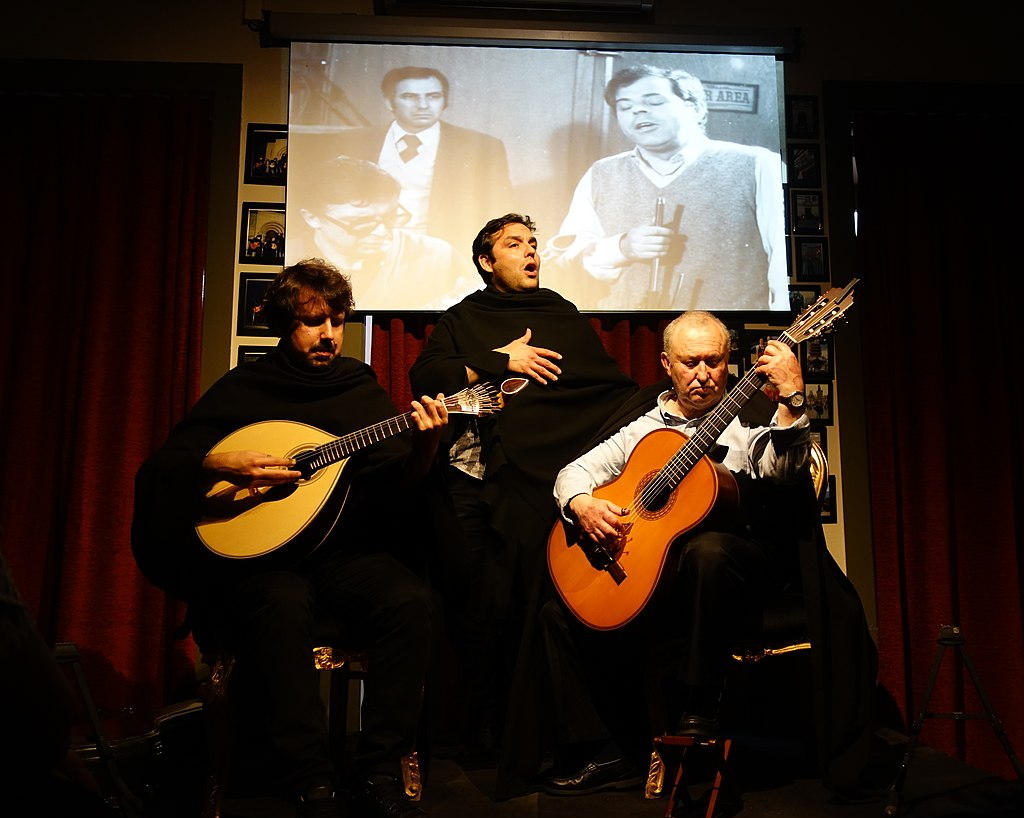History and Origins:
Fado's origins can be traced back to the working-class neighborhoods of Lisbon, particularly Alfama and Mouraria, where sailors, traders, and immigrants would gather in taverns and sing about their joys, sorrows, and hardships. Initially, Fado served as a form of expression for the marginalized and impoverished communities, reflecting their daily struggles and longing for better days. Over time, it evolved into a national symbol of Portugal's collective memory and shared experiences.Musical Characteristics:
At its core, Fado is characterized by its heartfelt vocals, soulful melodies, and expressive guitar accompaniment. The lyrics of Fado often explore themes of love, longing, nostalgia, and the bittersweet nature of life. The fadista, the singer of Fado, conveys deep emotions through their voice, delivering haunting melodies that resonate with audiences on an emotional level. The Portuguese guitar, with its distinctive twang and melancholic tones, provides a rich and evocative backdrop to the singer's performance, creating a seamless blend of sound and sentiment.Styles of Fado:
Fado has various styles that have evolved over time. Lisbon Fado, also known as Fado Castiço, is the most traditional and authentic form of Fado, characterized by its mournful tone and nostalgic lyrics. Coimbra Fado, on the other hand, originated in the student city of Coimbra and has a more academic and refined style, often sung by male performers. Both styles share a common thread of heartfelt expression but differ in their interpretations and regional influences.Cultural Significance:
Fado holds a deep cultural significance for the Portuguese people. It is a way to connect with the past, to reflect on life's joys and sorrows, and to honor the nation's heritage. Fado houses, intimate venues where Fado is performed, provide a space for artists and audiences to come together in a shared experience. These establishments, such as the famous Clube de Fado and Adega Machado in Lisbon, offer an authentic setting to immerse oneself in the mesmerizing world of Fado.Lisbon.vip Recommends
International Recognition:
While deeply rooted in Portuguese culture, Fado has gained international recognition and admiration. In 2011, Fado was recognized as an Intangible Cultural Heritage of Humanity by UNESCO, highlighting its significance and impact on global musical heritage. Fado singers such as Amália Rodrigues and Mariza have achieved worldwide acclaim, spreading the enchanting sounds of Fado to audiences around the world and transcending language barriers with their heartfelt performances.Experiencing Fado:
To truly experience Fado, visiting a Fado house or attending a Fado performance is highly recommended. These intimate settings allow visitors to witness the emotional power of Fado up close and personal. As the singer pours their heart out, accompanied by the resonating strings of the Portuguese guitar, listeners are transported to a world of longing, saudade, and shared human experiences.In conclusion, Fado represents the soul of Portugal, capturing the joys and sorrows of its people through haunting melodies and heartfelt lyrics. This captivating musical genre has endured the test of time, resonating with audiences and leaving an indelible mark on Portuguese culture.



